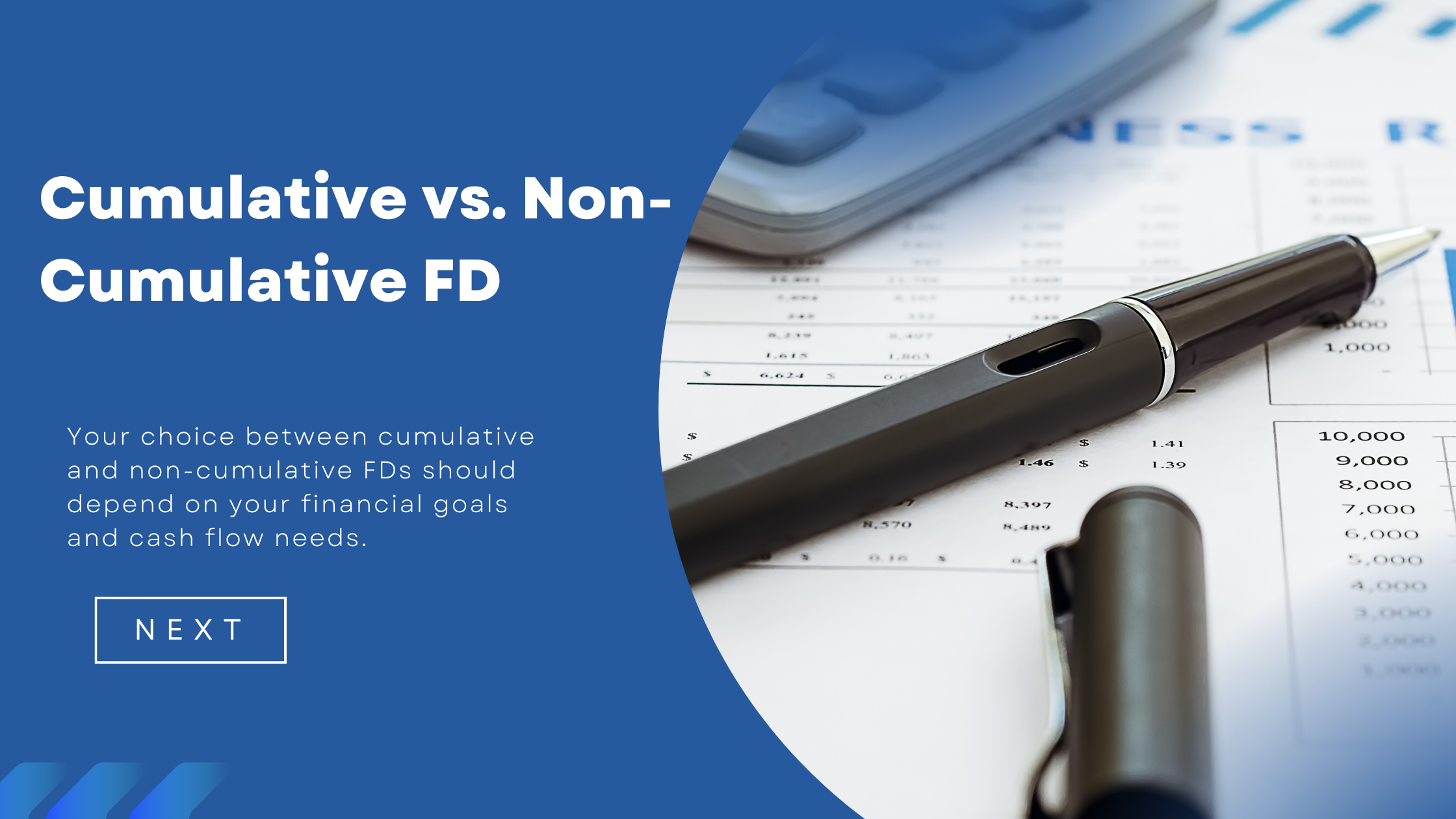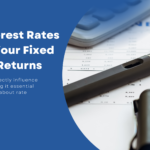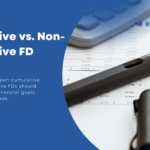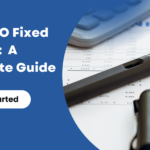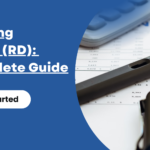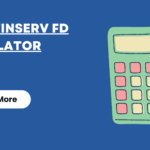When investing in Fixed Deposits, one of the most important decisions is choosing between cumulative and non-cumulative FDs. Both have their own benefits, and the right choice depends on your financial needs. Let’s make it simple.
What is a Cumulative FD?
A cumulative FD lets your interest accumulate over time and pays you a lump sum at maturity. This means:
✔️ No periodic payouts – you get all your returns at the end.
✔️ Your interest is compounded, helping your money grow faster.
Who Should Choose Cumulative FDs?
- Long-term savers: If you’re saving for a future goal (like education, a house, or retirement), cumulative FDs give you a bigger payout in the end.
- Wealth builders: Compounding helps your investment grow faster, making it great for those who don’t need frequent cash withdrawals.
What is a Non-Cumulative FD?
A non-cumulative FD pays interest regularly – monthly, quarterly, half-yearly, or annually. Unlike cumulative FDs, the interest is not compounded, as you receive payouts throughout the tenure.
Who Should Choose Non-Cumulative FDs?
- Retirees & pensioners: If you need a steady income to cover daily expenses, non-cumulative FDs ensure regular cash flow.
- Short-term planners: If you want fixed interest payouts while keeping your principal safe, this is a great choice.
Cumulative vs. Non-Cumulative FD – Quick Comparison
| Feature | Cumulative FD | Non-Cumulative FD |
|---|---|---|
| Interest Payment | Paid at maturity | Paid periodically (monthly/quarterly, etc.) |
| Compounding | Yes, interest is compounded | No, as interest is paid out regularly |
| Best For | Long-term investors, wealth accumulation | Income-seekers, regular expense coverage |
| Return on Investment | Generally higher due to compounding | Lower compared to cumulative FDs |
Which FD Type is Right for You?
Your choice depends on your financial needs:
✅ Want to maximize returns over time? Choose a cumulative FD for the power of compounding.
✅ Need a steady cash flow? A non-cumulative FD will provide regular payouts to support your expenses.
Both types can be useful depending on your goals. Consider your needs and pick the one that fits your financial plan best!
